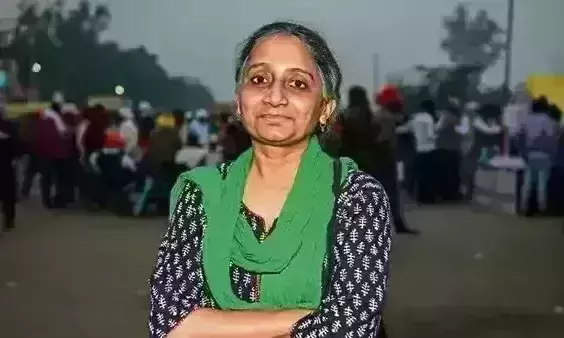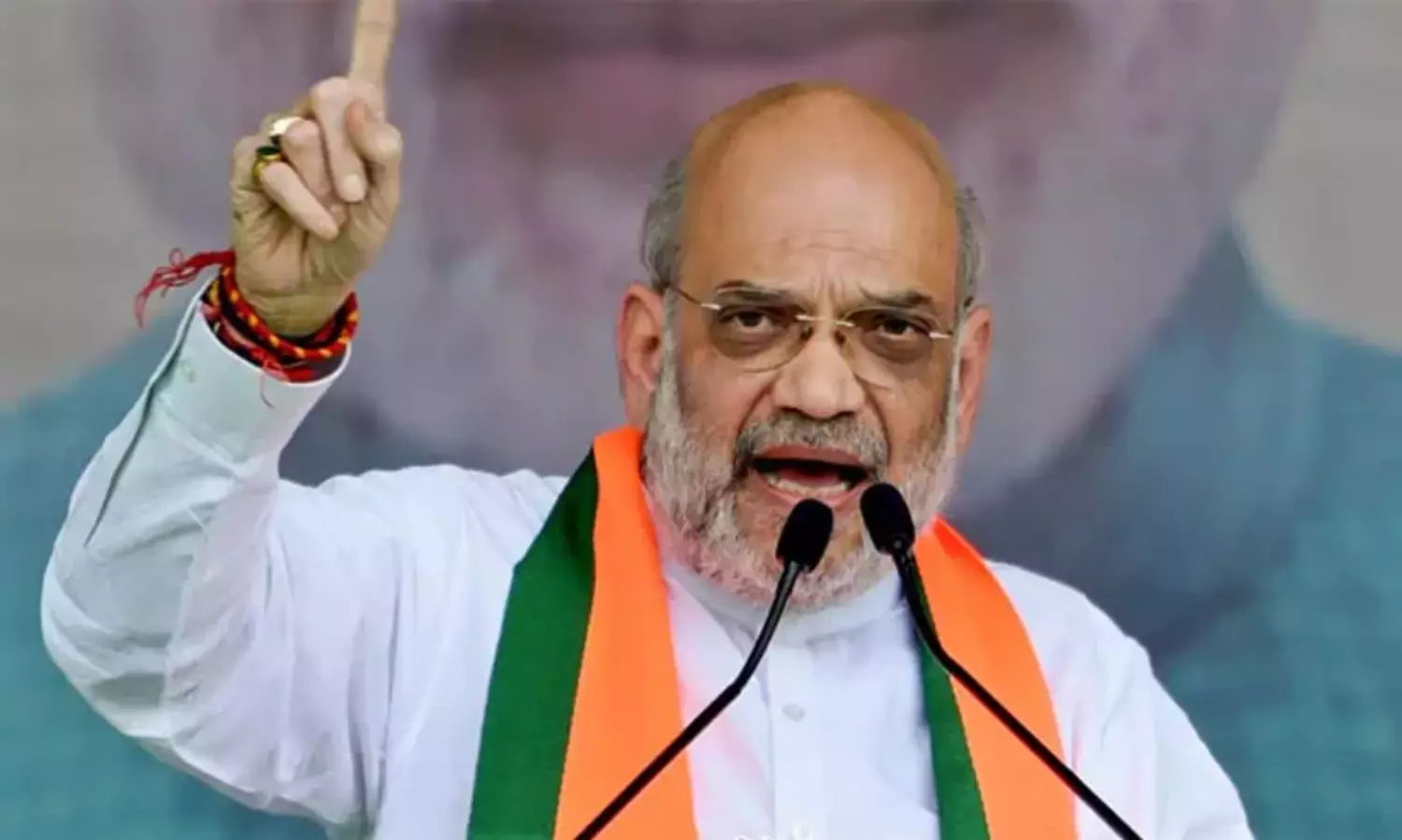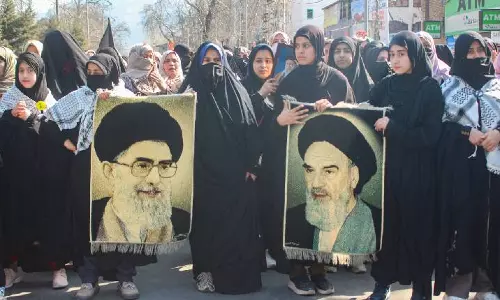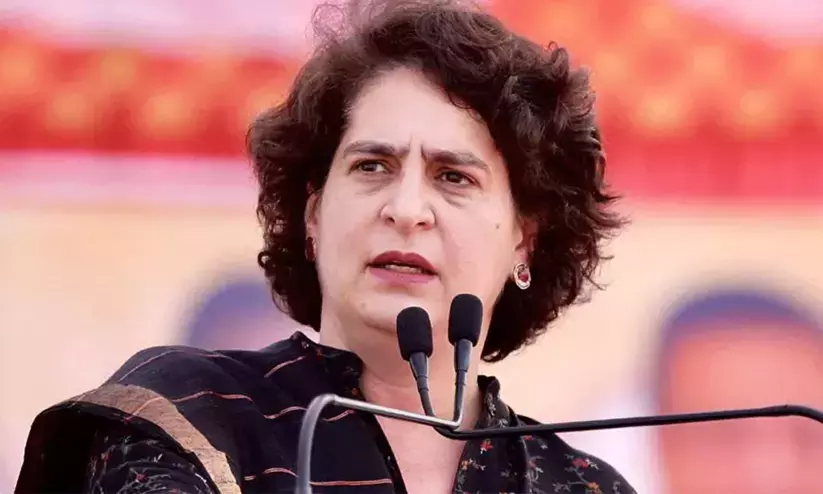

Kavitha Kuruganti, Member, All India Kisan Sangharsh Coordination Committee (AIKSCC).
Sure, we will win this protest, says Kavitha Kuruganti
text_fieldsThe present farmers protest that New Delhi is witnessing is the biggest of its sort in post-independence India. Kavitha Kuruganti is the only woman leader among the 42 farmer denominations; she is the leader of Mahila Kisan Adhikar Manch and coordinator of the All India Kisan Committee. Kavitha was one among the leaders who presented the demands of the farmers before the central government.
She is one of the founder leaders of Alliance for Sustainable and Holistic Agriculture (ASHA) which has active representation and participation in 20 states. She belongs to Karnataka. She was in the forefront of the struggle against the genetically mutated seeds of brinjal and mustard. She is active in many government bodies on agriculture.
Here is an interview with her:
Being in the forefront, what is your opinion, how is history going to mark this struggle?
Of course, this is the biggest farmers' protest independent India has witnessed. The struggle has strong and firm goals. But the results are unpredictable. The Farmers' Produce Trade and Commerce (Promotion and Facilitation) Act, The Essential Commodities (Amendment) Act and The Farmers (Empowerment and Protection) Agreement on Price Assurance and Farm Services Act are promulgated by the Modi regime are to completely surrender the farm sector to corporates. Once the farm sector goes to the corporate sector, the farmer will have only Hobson's choice of selling the commodities at the rates fixed by the corporates. The All India Kisan Sangarsh Coordination committee which made the call of Chalo Delhi has now become a border siege struggle. At the outset it was in Tikri, and Singhu border areas where the farmers from Punjab and Haryana launched the struggle. Later on, it spread into Delhi-UP border of Ghazipur. To sum up, the country responded positively to the respected feeders of the country. The support received internationally shows the importance of this struggle.
Is not the farmers protest met by the Govt in a fascist style.?
As to the protests that were held in previous years, the government's modus operandi is definitely fascist. The attempt of the government to repress the struggle with water canons, teargas, and lathi charging has definitely failed in the beginning itself. Braving the barricades and trenches and all other repressive measures the farmers thronged Delhi to participate in the mammoth protest. The government applied its fascist approach against the farmers coming from other states. Many activists and leaders from southern states are arrested to prevent them from coming to Delhi. Ayaakannu, the leader of popular farmers leader in Tamil Nadu was held in house-arrest-like-situation just to prevent him from coming to Delhi. A good number of farmers from Kerala, Andhra, Telangana, Goa and Maharashtra have joined the protest.
How do you assess the discussions with the government including that of Minister for Agriculture?
The farmers made a strong protest against these laws that were passed in parliament without sufficient discussion even before it became acts. The Modi regime which is definitely in league with the corporates tries to avoid the farmers completely right from the beginning. The same tone and tenor was repeated during the very first meeting held with the Agriculture Ministry. The very same day, farmers representatives held a sit -in on the main road in Delhi and tore the copy of the bill. This testifies to the negligence farmers suffered. Consequently, representatives of 42 organisations held nine rounds of discussion till January 15. Instead of a positive approach and concrete response, every time the discussion ended with fixing the date for the next discussion. As the delegation starts for the meeting they expect for a good result, but comes back empty handed. Such feeling of holding perfunctory meetings has become permanent.
A solution through Supreme Court, was it a pre-planned one by the Govt.?
There will be no solution from court as expected and planned by the Govt because, this is absolutely a policy issue. It is a protest against the policy adopted by the elected government. The proposal by the government to appoint an expert committee was dismissed by the farmers at that very moment. The Supreme Court proposed the same thing when it took up the matter. Farmers have made it clear, it is up to the government to do, farmers are not ready to discuss even with the bureaucracy. But we are firm that solutions should come from the government.
As agriculture is under state list, isn't the central government's action against federal principles?
It is doubtless that the Government violated the federal principles as agriculture is under state list. The farmers organizations have made it clear in all discussions. Given this, the legal validity also is in question. Let the Supreme Court comment on it. Once the law comes into force, inter state concerns on agricultural marketing will surface. This law aims to control local markets in the state. According to the Seventh Schedule of the Constitution, the market is absolutely a state subject.
Court queries why women in protests. How do you see it?
The Supreme Court's question on the women participation is painful. It is a reflection of the male centric society. What is underestimated is the women's choice to participate on their own will. If there is more male participation in the struggle, it is because women work double than males. The work done by the participating male is now shouldered by women, it is another onus on them.
The attempt of inviting pro-BJP and Sangh parivar organizers to discussions is intended to break the coordination and unity of the protesting farmers. Is it so?
Organizations across the country are represented by their presence in the Delhi protest. 600 organizations including Bharathiya Kisan Union are protesting under the umbrella of All India Kisan Coordination Sangarsh. However, as usual there are differences of opinion here too simply because of differences in ideology and working style. But when the situation demands a chorus and orchestration, they do it. Thin differences fade out. Farmers are here with food for them and others. Tractors turn out to be bedrooms at night. It is more than a struggle for rights, it is now a camaraderie.
Are the BJP and Central Government on a back foot finding it difficult to offer a logical response?
The government dodge themselves from the duty of saving the poor The one aspect with which the central government is justifying the laws is foreign investments, but they did not clear the how and why of foreign investments. We have sufficient bitter experience of farmers in states where there is no minimum support price. Even during the ongoing struggle, some incidents of issuing bad cheques for the purchase of seeds from farmers were reported. Regrettably, even many south Indian states do not have a good model for preserving agricultural produce.






















